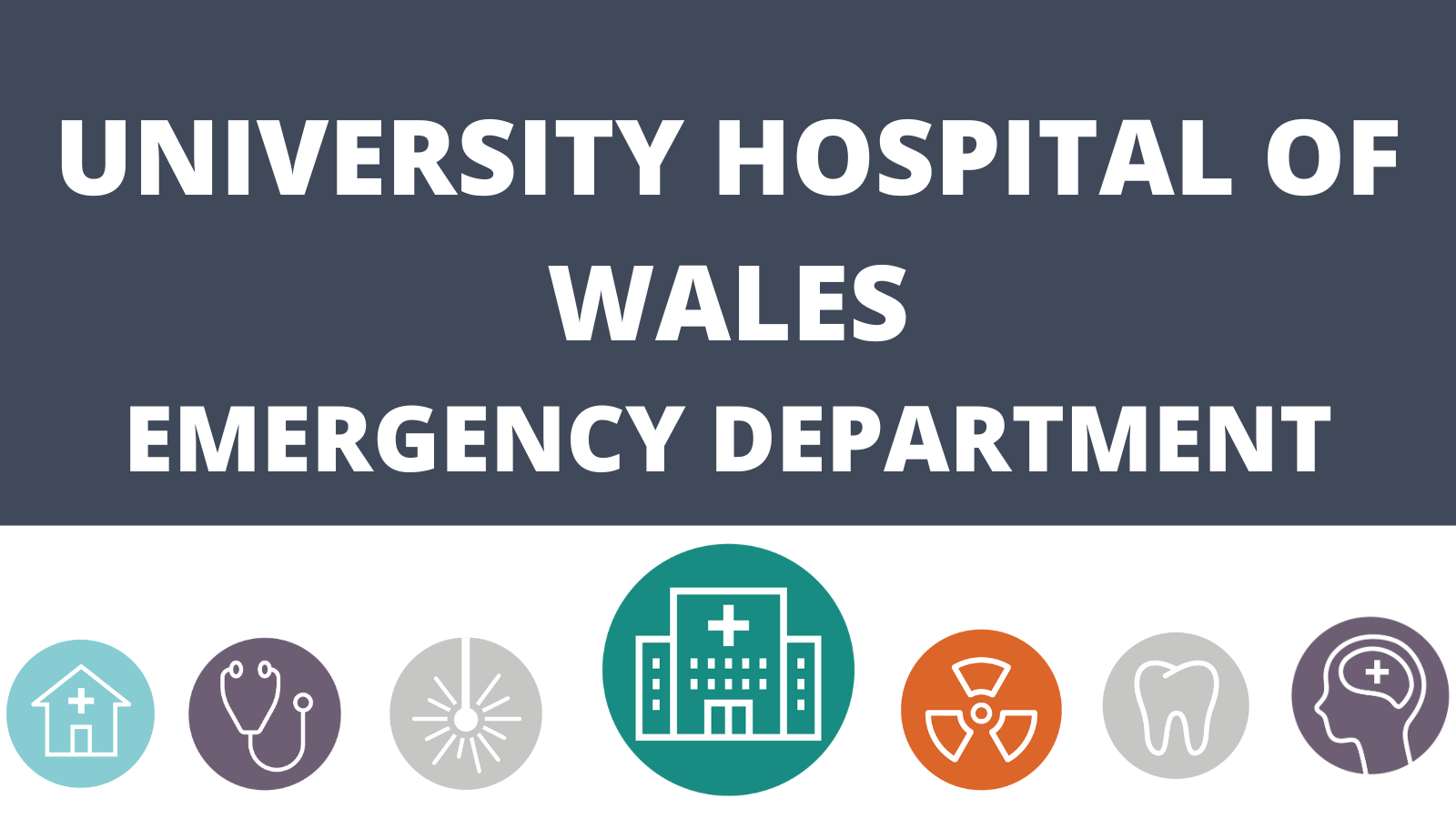Emergency care at the University Hospital of Wales in Cardiff is improving
Healthcare Inspectorate Wales (HIW) has issued a report (6 June 2024) highlighting improved care within the Emergency Department at the University Hospital of Wales, run by Cardiff and Vale University Health Board.

It was positive to see that many improvements have been made since our previous inspection in June 2022, with many areas of good practice noted. However, there were still some areas which required attention and improvement.
Inspectors completed the unannounced inspection of the hospital’s Emergency Department, Clinical Decisions Unit and Paediatric Emergency Department across three consecutive days in March 2024.
On arrival the department was in the highest escalation demand rating. The waiting room was full, with ambulances waiting outside. Although the department was extremely busy, there was a calm feel to the unit. Staff and managers were aware of the situation, and appropriate escalation action had been taken. Our inspectors were advised of ongoing initiatives to develop and improve the service to patients, including the Rapid Assessment and Treatment Zone (RATz) service, which had been helping to reduce waiting times. We found the department appeared to have good working relationships with stakeholders such as the ambulance service to reduce waiting times.
We found staff were committed to providing a high standard of care to patients. There were many examples where the inspection team witnessed staff being respectful and friendly to patients. When asked, patients told our inspectors they were happy with the care being provided, and that their privacy and dignity was being protected. They also told us they had been provided with enough information to help them understand their care and medical conditions. The Welsh language was well promoted within the department and inspectors saw a range of leaflets available for post-discharge advice. However, the NHS Wales complaints and concerns process ‘Putting Things Right’, was not prominently displayed throughout the unit.
Our previous inspection highlighted the need for improvement regarding infection prevention and control. These had been addressed through the recent refurbishment of the unit, and the clinical areas being relocated. Overall, the physical environment was well laid out and maintained, although we did find the department’s direction signage was inadequate.
A digital process was in place to ensure there were regular checks of emergency equipment. However, we issued an immediate assurance notice due to medicines not being consistently checked for their temperature and expiry dates. Inspectors were not assured that medical equipment was being appropriately serviced and calibrated to ensure patient safety. We were concerned to hear staff felt they did not have easy access to the equipment they needed, such as thermometers and vital sign recording machines. The health board must ensure this is rectified to avoid patient safety risks.
The patient records we reviewed generally showed that nursing staff had assessed patients for their risk of developing further medical conditions. However, during our review of patient records we found notes to be unorganised and difficult to navigate. In addition, we saw that medical staff often did not sign entries. Senior staff provided examples of audits conducted within the Emergency Department. These considered areas relevant to both units, such as patient and staff feedback, the environment and facilities, completion of patient risk assessment documentation and infection prevention and control. However, results of audit activity were not found to be displayed.
A suitable management structure was in place and senior staff described clear lines of reporting, with visible and supportive leadership. We saw evidence of new initiatives to increase staff retention, including an induction pathway for new staff. This included shadowing experienced staff, completing competencies and training over a twelve-month period. It was also positive to see new staff had been recruited to critical roles following our previous inspection. We found that compliance rates for mandatory training were generally appropriate. However, there were low rates of completion for fire safety, basic life support and paediatric immediate life support training.
Chief Executive of Healthcare Inspectorate Wales, Alun Jones said:
‘There are mounting pressures on NHS services and the University Hospital of Wales, like all hospitals, continues to face extraordinary challenges due to increased demand. It was positive to see evidence that the health board has started to implement systems and processes to address areas of improvement identified during our previous inspection in June 2022. There are still some issues of concern which must be addressed to ensure the quality of care provided continues to improve. We will continue to engage with the health board to ensure timely progress against our findings.’